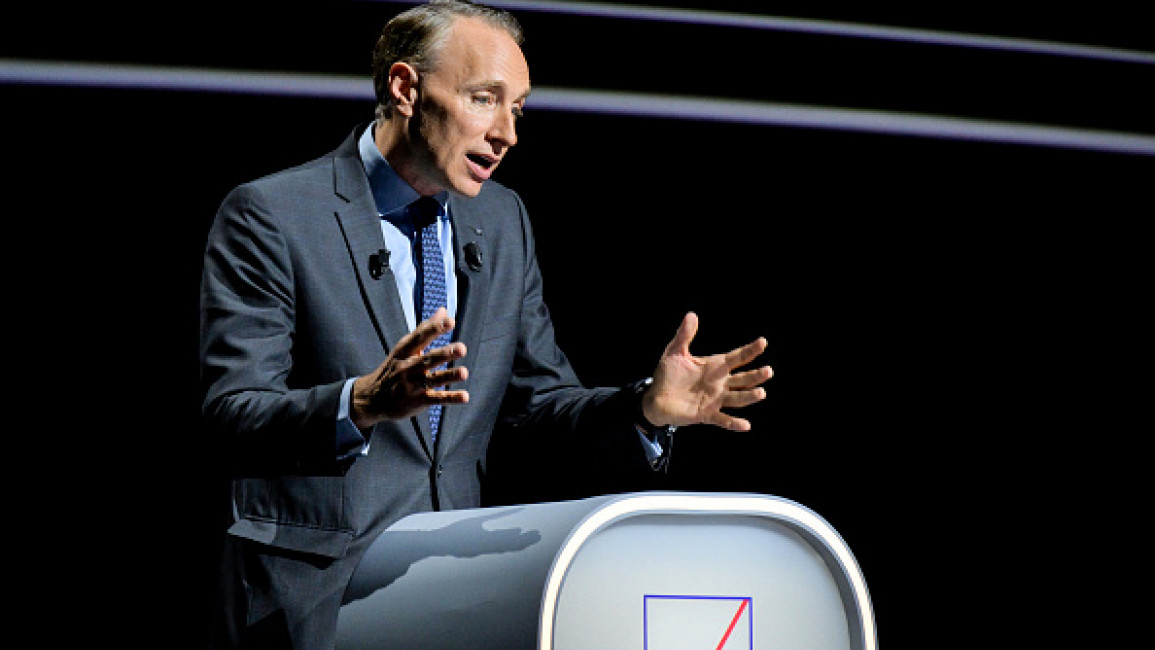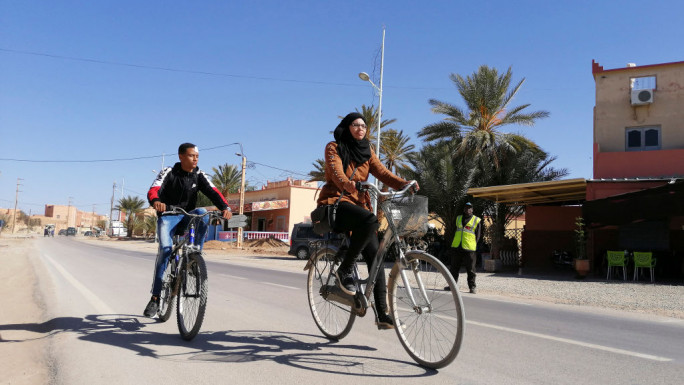BDS win: Activists push AXA to divest from Israeli banks over Gaza war
French multinational insurer AXA has divested its holdings in all major Israeli banks, according to a report on Wednesday.
The move has been hailed as a major victory for the Boycott, Divestment and Sanctions (BDS) movement, and activists who had raised concerns about the banks' involvement in financing activities linked to Israeli settlements and other violations against Palestinians.
The report, issued by corporate accountability group Ekō, said AXA's decision to withdraw its investments followed several years of growing public pressure.
Ekō, which was part of the years-long 'Stop AXA Assistance to Israeli Apartheid' campaign, revealed that AXA officially divested from five major Israeli banks, including Bank Mizrahi-Tefahot and First International Bank of Israel.
It said that AXA's withdrawal signalled an intentional shift due to divestment pressure, not in response to market prices.
"In 2019 Ekō published a damning report exposing the insurer’s investments in. This was covered by major news outlets like Mediapart or Insurance Business and the Business & Human Rights Resource Centre, linking the insurer to Israeli war crimes for the first time in the press," Ekō senior campaigner Daphne Cronin told The New Arab.
"This led to AXA to divest from Elbit Systems, partially in December 2018 and in March 2019, and fully by the end of 2019," she added.
"It also sold its shares in two complicit banks, Bank Mizrahi-Tefahot and First International Bank of Israel, but reinvested in them later on. AXA only fully divested from those two banks by 31 December 2022 as confirmed by our new report."
The organisation added that their campaign escalated significantly following the outbreak of Israel's latest war on Gaza on 7 October, which led to protests led by Ekō and other activist groups in countries such as Britain and France.
The rights group also stated that following its April call for action against AXA in the French capital, AXA CEO Thomas Buberl was later quoted as having said that his company has no investment in Israeli banks.
"Regarding our direct communications with AXA, we know from an insider source that AXA has made a conscious choice to never acknowledge its investments in Elbit Systems and the Israeli banks, or respond to Ekō's inquiries," Cronin said.
"Despite several attempts from Ekō, over the years, to engage in a constructive dialogue with the insurer."
Ekō additionally provided insights into the scale of AXA's investments in these banks, highlighting that while they represented a small portion of AXA’s vast portfolio — valued at approximately $859 billion — the investments have not always been so modest.
"AXA’s investments in the five complicit Israeli banks in the last few years is small relative to its overall portfolio," Cronin explained.
"But it has been bigger in the past. We know that in Q2 2007, AXA’s investments in Bank Hapoalim alone were valued at US$472 million. It is therefore clear AXA has long profited from its investments in banks complicit in war crimes against Palestinians and weapons manufacturers such as Elbit Systems, which it fully divested from in 2019."
The 2019 report by Ekō revealed that AXA was involved in investing over USD 90 million in the five largest Israeli banks, all of which have been linked to financing infrastructure and housing projects in illegal Israeli settlements in the Occupied Palestinian Territories.
Cronin emphasised that the relatively small size of these investments in recent years should have made it easier for AXA to act in accordance with its Environmental, Social, and Governance (ESG) commitments much earlier.
WE DIDI IT!
— BDS movement (@BDSmovement) August 21, 2024
In a major BDS win for human rights activists against financial institutions complicit in Israel’s 76-year-old regime of settler colonialism, apartheid and now genocide, French multinational insurer @AXA was forced to sell its investments in all major Israeli banks.… pic.twitter.com/zaaLREImnI
"The fact that these investments weren’t financially and strategically crucial for the insurer should have influenced AXA to take the right decisions much earlier, as a proof and embodiment of its own ESG commitments," Cronin said.
While AXA's recent divestment from Israeli banks has nonetheless been viewed as a significant victory, Ekō says the fight is far from over.
The organisation reaffirmed that it is already planning its next moves to ensure ongoing accountability and to target other major corporate investors involved in similar activities.
"AXA is not off the hook yet," Cronin said, emphasising that Ekō will continue to scrutinise AXA’s investments to ensure they are not complicit in Israel’s ongoing actions in Gaza.
While details on upcoming initiatives remain under wraps, Cronin hinted at broader campaigns targeting major European financial institutions that engage with weapons manufacturers supplying Israel.
"All the listed financial actors will be subject to further action on our part, with a focus on two specific actors, which we will disclose at a later date," she added.
Ekō's determination to hold corporations accountable continues, with Cronin affirming, "We will continue to investigate AXA’s investments to make sure it is not complicit in Israel’s ongoing genocide in Gaza."
AXA’s divestment coincides with a recent International Court of Justice (ICJ) ruling that declared Israel's apartheid practices against Palestinians and its military occupation and annexation of Palestinian territories as illegal.
Cronin underscored the significance of this ruling, stating, "The ICJ is clear that all states, local governments, corporations, and institutions have an obligation to stop enabling these grave violations of international law, including corporations like AXA."
AXA has since issued a statement to The New Arab and stated that it is committed to comply with ethical standards in accordance to international law.
"AXA aims to avoid any negative impact on human rights that could be associated with its investment activities," a representative said.
"The ESG assessment of companies in which the AXA Group has invested, or is considering investing, incorporates the following elements related to human rights: fundamental principles such as those of the United Nations Global Compact, the International Labour Organization, or the OECD, which cover areas such as forced labour, discrimination, inclusion of vulnerable populations, controversial weapons, working conditions, and the reputation and potential controversies surrounding these companies."
AXA has reaffirmed its position that it has not invested any shares into the Israeli banks named amid calls for boycott and divestment.
This article has been edited to add AXA's statement.

![Palestine sat next to member states at the United Nations General Assembly on Tuesday [GETTY]](/sites/default/files/styles/image_684x385/public/1441455581.jpeg?h=199d8c1f&itok=CgJaFY6v)




